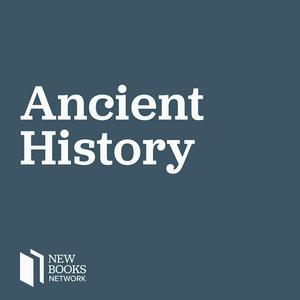Christy Cobb and Katherine A. Shaner, "Ancient Slavery and Its New Testament Contexts" (Eerdmans, 2025)
The institution of slavery permeated the ancient world, such that the realities of slavery and its long shadows pervade the New Testament and other early Christian texts. Yet enslavement remains an under-taught aspect of the context of the New Testament and early Christianity, leaving pastors, laypersons, and neophyte college students alike to fill knowledge gaps about enslaved persons, enslavers, living and laboring conditions, and much more with partial information, assumptions, or a range of highly technical and specialized monographs.
Ancient Slavery and Its New Testament Contexts (Eerdmans, 2025), co-edited by Christy Cobb and Katherine A. Shaner, takes on these issues, introducing readers to the textures, complexities, and material realities of slavery in the Greco-Roman world. International scholars with a range of expertise, from New Testament and early Christian studies to classics, theology, ethics, and more, contribute to a tapestry of introductory themes, topics, and interpretive frameworks with a wealth of literary, inscriptional, pictorial, and theoretical evidence from the material culture of Roman antiquity in this significant volume. Dr. Cobb and Dr. Shaner joined the New Books Network to initiate important conversations that they hope will continue in religious studies classrooms, schools of theology and divinity, and local church small group settings.
Christy Cobb (Ph.D., Drew University, 2016) is Associate Professor of Christianity at the University of Denver. She is the author of Slavery, Gender, Truth and Power in Luke-Acts and Other Ancient Narratives (Palgrave Macmillan, 2019) and has also co-edited a volume entitled Sex, Violence, and Early Christian Texts (Lexington Books, 2022). Dr. Cobb is also a member of the editorial board for the Journal of Feminist Studies in Religion, and her research and teaching interests include slavery, gender, sexuality, Acts, and Apocryphal Acts. In her recreational time, Christy enjoys reading novels, crafts, and spending time with her nine-year-old son in Denver.
Katherine A. Shaner (Th.D., Harvard University Divinity School, 2012) is Associate Professor of New Testament at the Wake Forest University School of Divinity. She is the author of Enslaved Leadership in Early Christianity (Oxford University Press, 2018) as well as numerous articles on slavery in the New Testament. Dr. Shaner is an ordained pastor in the Evangelical Lutheran Church in America (ELCA) and regularly preaches and teaches in churches around the United States. In her free time, Katherine enjoys hiking in the mountains, reading historical fiction, cooking dinner for friends and spending time with snuggly dogs.
Rob Heaton (Ph.D., University of Denver, 2019) hosts Biblical Studies conversations for New Books in Religion and teaches New Testament, Christian origins, and early Christianity at Anderson University in Indiana. He recently authored The Shepherd of Hermas as Scriptura Non Grata: From Popularity in Early Christianity to Exclusion from the New Testament Canon (Lexington Books, 2023). For more about Rob and his work, or to offer feedback related to this episode, please visit his website at https://www.robheaton.com.
Learn more about your ad choices. Visit megaphone.fm/adchoices
